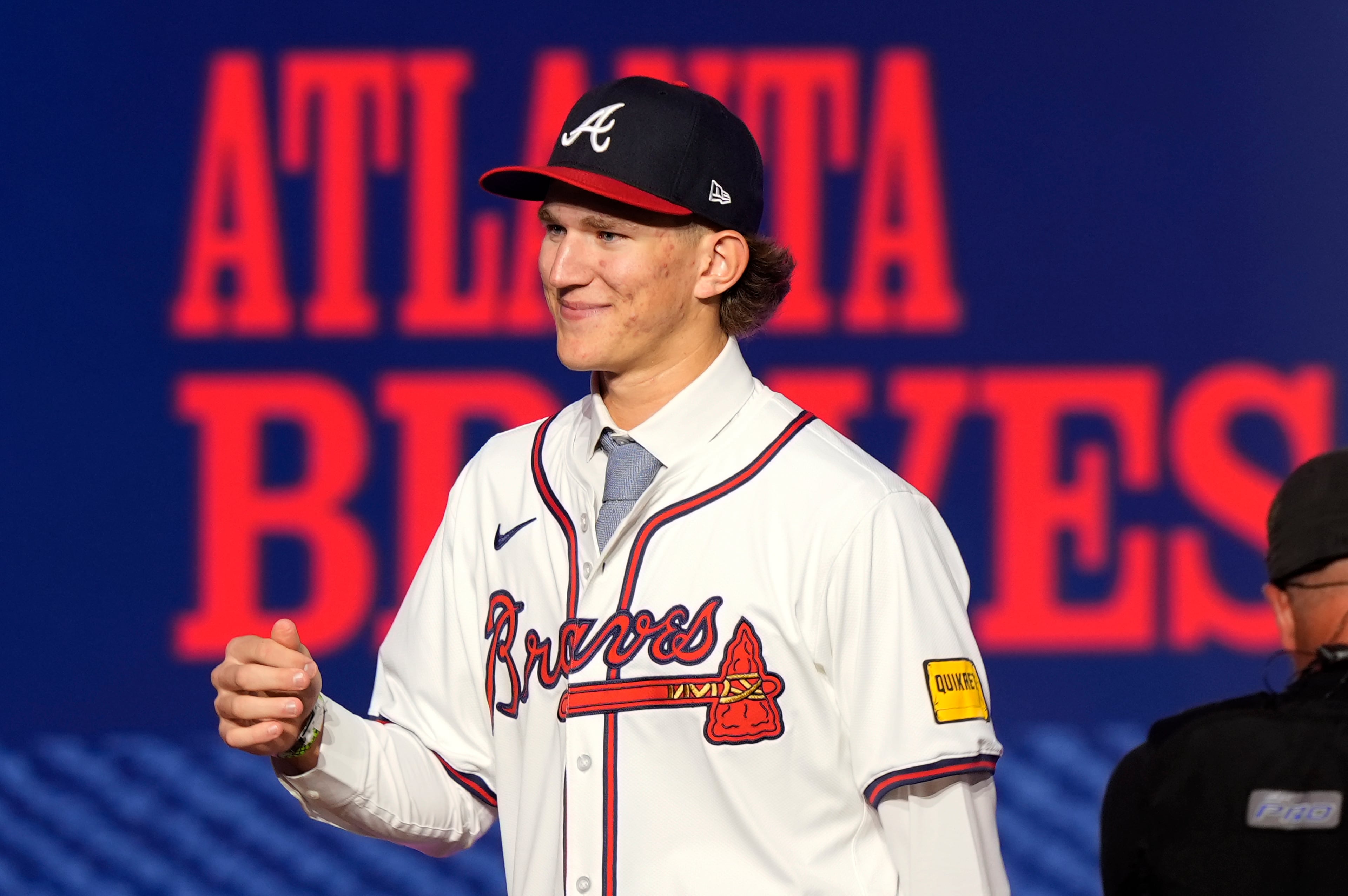Braves could make run at free-agent pitcher Lester
There remains one spot open in the Braves’ starting rotation, and they might just aim high to fill it. Very high.
The Braves will meet Thursday with free agent left-hander Jon Lester in Atlanta, only about 30 minutes from his offseason home near Peachtree City.
Proximity and a mutual interest the Braves and Lester have had for years are reasons the team will gauge the viability of making a bid for him. This despite president of baseball operations John Hart saying previously that the team didn’t plan to pursue top-tier free-agent pitchers this offseason.
Lester definitely is top-tier, and he will command a long-term deal worth more than $20 million annually.
He’s been pursued by at least a half-dozen teams, with the Cubs, Blue Jays and his longtime former team, the Red Sox, expected to engage in a bidding war that could push the price tag toward $25 million annually. But friends said family is a top priority for Lester and that he’s said many times that he’d like to live at home and pitch for the Braves.
Lester turns 31 in January and had one of his best seasons, going 16-11 with a 2.46 ERA and 220 strikeouts in 219 2/3 innings, including a 2.35 ERA in 11 starts for Oakland after a July trade. He has a 116-67 record and 3.58 ERA in nine seasons, all with Boston before the July trade.
In the past seven seasons he’s won at least 15 games six times, topped 200 innings six times, posted 220 or more strikeouts three times, and twice finished fourth in Cy Young Award balloting.
The Braves shaved about $11 million in payroll for 2015 with a trade Monday that sent Jason Heyward and reliever Jordan Walden to the Cardinals for starting pitcher Shelby Miller and pitching prospect Tyrell Jenkins. Miller joins Julio Teheran and lefties Alex Wood and Mike Minor to give the Braves a potentially formidable rotation.
Lester would push it from formidable to one of baseball’s best.
It might take some creativity to fit him in a payroll that Braves CEO Terry McGuirk said won’t be lowered from last year’s approximate $112 million. Trading Heyward and Walden left the Braves with about $70 million committed in 2015 to Justin Upton, B.J. Upton, Freddie Freeman, Craig Kimbrel, Chris Johnson, Andrelton Simmons, Teheran and Dan Uggla, who the Braves released in July but still owe $13 million.
Among arbitration-eligible Braves, Minor is projected to about $5 million, reliever James Russell about $2.4 million, and reliever David Carpenter and utility man Ramiro Pena around $1 million. That would push the total near $80 million for 11 players, leaving $30 million for the rest of the 25-man roster (many are non-arbitration players making $500,000 to $650,000).
The Braves are considering making offers to retain starting pitchers Kris Medlen and Brandon Beachy, who are coming back from their second Tommy John elbow surgeries and likely won’t be ready before May. The Braves have discussed a one-year offer for Medlen that has a reduced salary (he got $5.8 million in 2014) and a 2016 option.
There might not be enough room in the payroll for the Braves to comfortably add more than $20 million for Lester. But if he were to take slightly less to be at home, and the Braves work a backloaded deal coinciding with the move to their new ballpark in 2017, it’s possible Atlanta could be a player for Lester.
The might also shed more salaries. They are listening to trade interest in left fielder Justin Upton, who makes $14.5 million in his last season before free agency.
And so, perhaps Thursday’s meeting is more than just a courtesy or due diligence. Hart said after Monday’s trade for Miller: “We’re not looking to give up draft picks. We’re not looking to go out and financially handicap this club. We want to build something that’s going to sustain. We’ll take a look all around at what’s going to help us short term but certainly with an eye toward the future.”
Lester won’t cost a team a draft pick, since he was traded at midseason and thus wasn’t eligible for a qualifying offer.
Justin Upton led the Braves with 29 homers and a career-high 102 RBIs, and dealing him would open another gaping hole in an offense that finished 29th in the majors in runs.
“That certainly was a major issue with this club this past year,” Hart said. “Some guys are going to have to have better years. Again, we have some contract issues; there’s not a lot of places for us to put guys. We’re certainly going to continue to look at during the winter some areas where we can improve offensively. But I think, No. 1, it’s going to start with some of our guys having better years. We can’t go out and replace the entire club. …
“I don’t think one or two moves is going to make a significant difference in this offense. I think it’s going to be a combination of things. We’ll certainly try to bring some people in who have offensive capabilities who can fit our club.”
The Braves have tried to trade center fielder B.J. Upton, but haven’t found a team to take a portion of the $46 million left on his contract. They also haven’t found anyone willing to take him as part of a trade for a more appealing Brave.
Provided they keep Justin Upton and slugger Evan Gattis, the Braves plan to move Gattis from catcher to left field and switch Upton from left field to right to replace Heyward. Rookie Christian Bethancourt is penciled in as the primary catcher, though the Braves plan to add a veteran who can catch more games than a typical backup.

